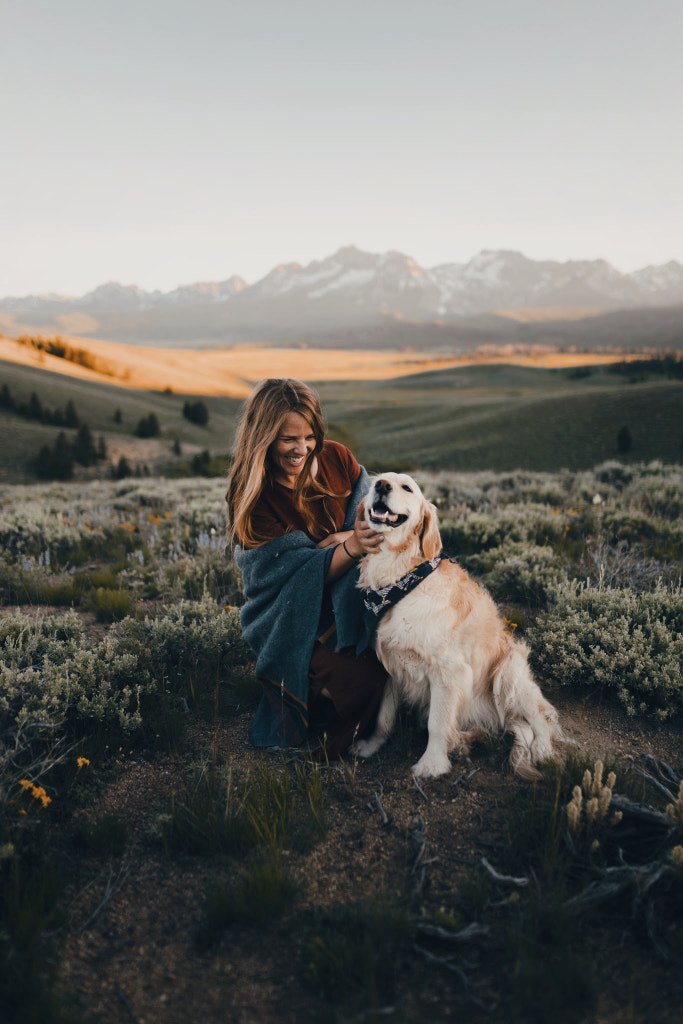The top questions on the minds of most commercial photographers these days are, “What kinds of images do buyers want right now?” and “How can I make my photos more visible?” To answer both of these questions, we can look at some of the trending search terms on 500px and Getty Images; their data shows us, in real-time, what marketers crave—and how they’re finding it through popular search terms.
Here are just a few searches that have caught our attention in the past year: sustainable appliances like “reusable cup” and “metal straw” are on the rise, as are tech-related searches for “smart speakers”, “contactless card”, and “rideshare.” These are all literal keywords in the sense that they describe exactly what’s in the photo.
At the same time, however, not all buyers go into a search with a literal idea of what they want. Many have an abstract concept they want to illustrate, and they might use popular terms like “innovation”, which consistently ranks among the top keywords on Getty Images. Phrases like “belonging”, “trust”, “connection” have gone up by 3400%, 126%, 165%, respectively.
This second group of keywords—also known as conceptual keywords—are as important and powerful as those literal keywords. But they’re often overlooked or added as an afterthought. “While keywording in the most literal and specific terms is a great way to ensure your photos are surfacing in searches, the use of conceptual keywords can boost your photo’s sales potential even further,” the 500px Content Team explains.
Here are our top tips for incorporating abstract phrases into your metadata workflow to increase your discoverability and ultimately boost your sales potential.
Tip #1: Jot down some keywords before your shoot
When you’re planning a photoshoot, you’ll already have an idea of the moods and emotions you want to spark, and those are some of the easiest conceptual keywords you have at your disposal.
If your shoot is about a family spending a cozy evening at home, words like “comfort”, “calm”, “togetherness”, and even “hygge” might come to mind. If you’re photographing a couple traveling, however, your keywords might include “freedom”, “romantic”, or “getting away from it all.”
Before any shoot, give yourself a creative brief, and include keywords that will help keep you focused on your strongest concepts. You’ll expand upon this initial list later, but it’s a good idea to start brainstorming right away, especially as you’re conceptualizing your photoshoot, and your imagination is running at full speed.
Tip #2: Start literal, then go conceptual
Literal keywords are usually straightforward; describe the who, what, where, when, and why, and you’re good to go. Conceptual keywords are trickier, but often, you can come up with some ideas just by looking at the literal keywords you already have.
If, for example, you start out with “family”, “pet”, and “golden retriever” you can move into more abstract territory with “companionship”, “bonding”, “simple living.” Similarly, “woman”, “two people”, “baby”, and “indoors” can give rise to more conceptual phrases like “family first”, “domestic life”, and “togetherness”. A photo of a person laughing can be tagged not only with “laughing” but also with “happiness” and “humor”.
Tip #3: Run a search on 500px or Getty Images
If you’re wondering whether or not to use a particular term, try running it through 500px and seeing how many image results you get. That will give you a good idea of how saturated that keyword or topic already is—and whether you should add more specific conceptual terms.
“When a buyer is searching for content, the most common and simple keywords will yield numerous results,” the Content Team tells us. “The number of photos keyworded with basic terms like ‘family’ or ‘person’ will be overwhelming to search through.
“To further filter content, a buyer might then add more abstract and conceptual search terms, expanding on the ideas they hope to find. On 500px, ‘family’ yields 688,639 results, while ‘fatherhood’ yields only 3,529.” By adding at conceptual keyword to the more common literal ones, you’d make it more likely that your photo would surface close to the top of those search results, so don’t be afraid to get specific.
Once you’ve uploaded your photos, feel free to run another keyword search and see where your images rank; this will give you a better idea of what keywords work well in improving your portfolio’s visibility.
Tip #4: Start a spreadsheet
There are a few things you can do to expand your conceptual keywording repertoire. First, you can participate in Licensing Quests on 500px, which provide suggested trending keywords to add to your images based on the brief. 500px also publishes regular blog posts about what’s trending in Licensing, and these can help spark new keyword ideas associated with in-demand themes.
We also recommend taking a look at what keywords top photographers on 500px have used. When you run a search for the keywords you already have, go into those keyword sections and see if those photographers have added any phrases that could also apply to your work.
Sometimes, a thesaurus can be helpful enough in generating new, creative keywords, though you can also turn to a keyword generator like KeywordsReady, keyword.io, Lightroom Keywords, or Xpiks. Finally, keep all these ideas organized in one place, so it’s easier to copy and paste them or apply them to batches of photos at a time. A separate section for conceptual versus literal keywords could come in handy, as all photos should have a mix of both types.
Tip #4: Shift your perspective
Marketable photos often have more than one interpretation, providing fertile ground for a variety of conceptual keywords. Sometimes, it can help to take a step away from your photos and look at them from a fresh perspective; you might notice themes and nuances that hadn’t previously jumped out at you.
“Look at the mood and narrative your photo could possess, including terms like ‘loneliness’, ‘fear of missing out’, ‘responsibility’, ‘perseverance’, etc.,” the Content Team adds. Here’s where you can get especially imaginative, since most images in your portfolio will contain several potential messages or meanings.
For example, perhaps you set up a portrait shoot around the concept of ‘sisterhood’, but on a second viewing, you realize that your image also speaks to ideas surrounding ‘empowerment’ and ‘strength’. Maybe you went into a solo travel-inspired outdoor photoshoot with concepts like ‘wanderlust’, ‘adventure’, ‘solitude’, and ‘the road less traveled’ in mind, but upon reexamination, you notice that it could just as well tap into themes like ‘conservation’ or ‘climate change’.
Literal keywords are essential—and they’re an ideal point of departure—but part of Licensing your work is thinking like an image-buyer and coming up with different commercial scenarios where your photos could be used down the road. Once you get into the habit of doing this and looking at your work from different angles, it’ll become easier to quickly generate relevant and in-demand conceptual keywords, boosting the overall visibility of your portfolio.
Not on 500px yet? Click here to learn about Licensing with 500px.













![[Photo Keywording Tips] How to add effective keywords to help your photos get discovered](https://iso.500px.com/wp-content/uploads/2014/10/500px_blog_photo_keywording_tips-1500x1000.jpg)
Leave a reply